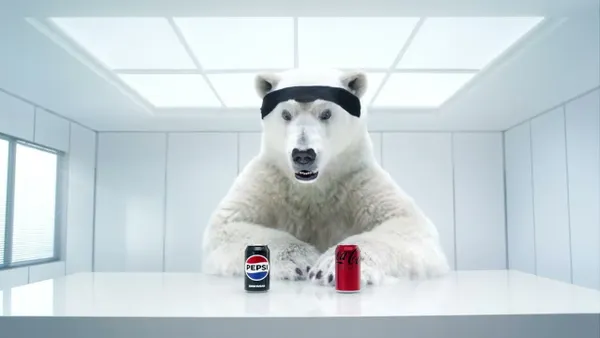Dive Brief:
- The top three brands on the 22nd annual Brand Keys 2018 Loyalty Leaders list are Amazon in online retail, Google for search engines and Apple for smartphones. The top 10 brands for loyalty also include Netflix in video streaming, Amazon in video streaming, Samsung in smartphones, Apple in tablets, Facebook in social networking, Amazon in tablets and Trader Joe's in natural foods. The list, whose results were shared with Marketing Dive, is based on an analysis of 761 brands across 84 categories.
- Non-digital brands moved up an average of 11 positions on the Brand Keys Loyalty Leaders list, in part by working harder to create emotional connections with consumers. "That's an incredible accomplishment in today's marketplace where consumers are hot-wired to the Internet," Robert Passikoff, Brand Keys president, said in a statement.
- Reebok appeared on the list for the first time in 2018 at No. 100. The brands that had the strongest gains in loyalty leadership were T.J. Maxx, 5 Guys Burgers & Fries, Zara, Lyft and JPMorgan Chase. The brands with the strongest loyalty losses include Airbnb, Starbucks, MAC Cosmetics, Victoria's Secret and Buzzfeed.
Dive Insight:
Digital brands have retained significant consumer loyalty even in a year marked by negative news, such as Facebook's Cambridge Analytica scandal. Though there are signs people are using Facebook less, the network retained its spot in eighth place on the Brand Keys list, underscoring the significant brand equity that major tech companies have.
Perhaps more interesting is what the report says about the strides that non-digital brands are making in creating emotional connections and value with consumers. The brands that showed the biggest gains were able to boost sales, grab a larger share of the market and further enhance brand loyalty. Consumers seem to avoid brands that are embroiled in controversy or that perceived as otherwise not doing well. The lowest-ranking brands had falling sales, store closings and declining web traffic.
Digital technology, social networking and brands that facilitate digital and social interactions make up most of the brands, comprising 35% of the list, down 1% year-over-year. Some major tech companies appear in multiple categories, underscoring how consumers that use products or services in one category are more likely to use the same brand's products in another category. According to the report, Amazon ranked in online retail, video streaming and tablets. Apple made the list for smartphones, tablets and computers, while Google made the list for search engines and social networking thanks to YouTube.
The other category rankings were mostly the same as last year: Retail rose three points to account for 19% of the list; automotive/auto rental/rideshare grew 12%; and restaurants grew 9%.
Consumers' increasing demands for personalized experiences are also putting greater pressure on marketers to deliver. Properly personalized experiences can help to strengthen brand loyalty. Forty-eight percent of consumers have left a brand's website and purchased from a competitor due to a poorly personalized experience, according to a recent Accenture survey. However, achieving personalization can be a fine line for marketers to walk, as consumers can feel both that marketing messages aren't personal enough and also that too much personalization is invasive or even creepy.











